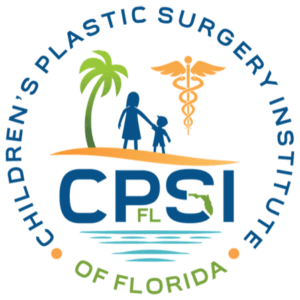Insect Sting Allergy
Introduction
Anatomy
Allergens are different for everyone. For some people, the venom of a stinging insect causes the immune system to overreact. Antibodies are produced in response to the venom. When a person is stung again by the same type of insect, the venom interacts with the antibodies. The antibodies trigger the release of histamine and other chemicals in the blood called mediators. The mediators cause the symptoms of an allergic reaction. The majority of allergic reactions to insect stings are not life threatening. However, in rare cases, a severe allergic reaction can cause death.
Causes
Honeybees, yellow jackets, hornets, wasps, and fire ants are stinging insects that live in the United States. The venom in the sting can cause an allergic reaction in some people.
Symptoms
For some, insect stings cause a severe life-threatening allergic reaction (anaphylaxis), and emergency medical help should be received. In addition to the symptoms stated above, a serious reaction causes difficulty breathing or swallowing, stomach cramps, and swelling of the tongue and throat. A person’s voice may sound hoarse, or he/she may faint or feel dizzy.
Life-threatening anaphylactic shock can rapidly develop. Anaphylactic shock causes a sudden drop in blood pressure, and a person may lose consciousness. Death can occur if a person stops breathing or if the heart stops beating. Again, call 911 if you or a person near you develops a serious reaction to an insect sting.
Diagnosis
Treatment
People with a history of significant stinging insect allergy should follow their doctor’s instructions for using a prescription self-injectable epinephrine medication (Epi-Pen, ANA-Kit). Emergency medical treatment should be received even with the use of the self-injectable medication. Call 911 if you or a person near you develops a severe reaction to an insect sting.
If you are allergic to insect venom, you should be evaluated by an allergist. After performing a skin test, your allergist will let you know if you are a candidate for allergy immunotherapy shots. The series of shots help reduce the body’s allergic response to insect venom. After receiving venom immunotherapy shots for three to five years, the risk of a severe allergic reaction to stinging insects is minimized.
Prevention
You should avoid areas where stinging insects are located. Contact a professional exterminator to remove insect hives or fire ant hills. If you do disturb an insect colony, run in a zigzag pattern to shelter.
Am I at Risk
You are at risk for an allergic reaction to insect stings if:
• You had an allergic reaction to insect stings before. In fact, it is most likely that your next insect sting by the same type of bug will produce a more severe allergic reaction than the last one.
• You are a male under the age of 20. Males in this age range most frequently experience severe allergic reactions to stinging insects.
Complications
Although rare, it is possible for a severe allergic reaction to cause death. If you or someone near you is experiencing a significant reaction to an insect sting, call 911.

Copyright © 2025 - iHealthSpot Interactive - www.iHealthSpot.com
This information is intended for educational and informational purposes only. It should not be used in place of an individual consultation or examination or replace the advice of your health care professional and should not be relied upon to determine diagnosis or course of treatment.
The iHealthSpot patient education library was written collaboratively by the iHealthSpot editorial team which includes Senior Medical Authors Dr. Mary Car-Blanchard, OTD/OTR/L and Valerie K. Clark, and the following editorial advisors: Steve Meadows, MD, Ernie F. Soto, DDS, Ronald J. Glatzer, MD, Jonathan Rosenberg, MD, Christopher M. Nolte, MD, David Applebaum, MD, Jonathan M. Tarrash, MD, and Paula Soto, RN/BSN. This content complies with the HONcode standard for trustworthy health information. The library commenced development on September 1, 2005 with the latest update/addition on February 16, 2022. For information on iHealthSpot’s other services including medical website design, visit www.iHealthSpot.com.















